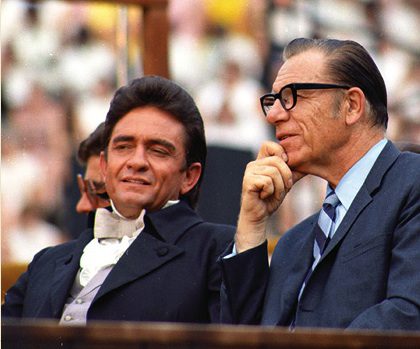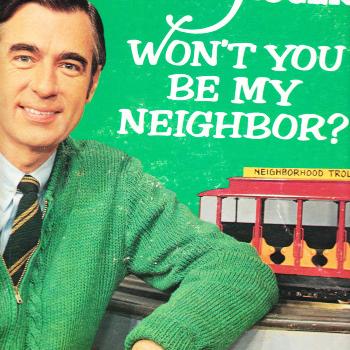Some more sad news in an already sad week: the passing of three remarkable people.
First, Jonathan Winters, an irrepressible comic genius who, as Mark Evanier wrote, TV and movies never figured out how to employ:
I loved listening to Jonathan Winters. He was funny in a way that no one else, not even his imitators, was ever funny. I want to hold that thought and remember that above all but I can’t quite get around the fact that for the last few decades of his life, his greatest talent went largely unexhibited. No one ever really knew what to do with him…and he could never quite understand why he wasn’t working much. Those are probably the two great curses of being the only one of your species. Oh — and there’s also the sad fact that we’ll probably never see anyone like him again.
Robin Williams remembers Winters in a fond New York Times op-ed, writing: “Sometimes I would join in, but I felt like a kazoo player sitting in with Coltrane.”
George Beverly Shea died Tuesday at the aged of 104. Shea, who recorded more than 70 albums of hymns, is best-remembered as Billy Graham’s favorite singer and a regular feature of Graham’s stadium-tour evangelistic meetings. The picture here is from a photo-gallery tribute at BillyGraham.org.

Adelle M. Banks shares this lovely bit from her RNS retrospective on Shea:
In 1955, Shea made a couple of wording adjustments to the classic hymn “How Great Thou Art” — one of Graham’s favorites — that have endured. He changed “consider all the works thy hands have made” to “consider all the worlds thy hands have made” and modified “I hear the mighty thunder” to “I hear the rolling thunder.”
“I got a bang when I used to hear Elvis Presley sing my two words,” he told Religion News Service in a 2004 interview.
And finally, Brennan Manning, an author whose utter dependence on grace led him to extend grace to others. Tim Morey has a grateful remembrance of Manning at Fuller Seminary’s Burner blog:
Brennan’s own life was that of a sinner living off of grace. At various times he was a Marine, a monk living in a cave, a Catholic priest, and an aid worker. Then he was an ex-priest, excoriated for leaving the ministry to marry, and then for decades a brilliant writer and speaker. Throughout it all he was a struggling alcoholic, who lost everything more than once. Brennan’s story was not a clean, meet-Jesus-and-find-deliverance, tie-a-pretty-bow-on-it kind of story. Long after he was internationally famous he battled to maintain sobriety, sometimes successfully, sometimes not.
I’ve read little bits of Manning’s writing here and there, but I’ve not read any of his books. I have, however, met many people who treasure his most famous book, The Ragamuffin Gospel: Good News for the Bedraggled, Beat-Up, and Burnt Out. And based on those good people, I’d say it was an influential book that I only wish were more influential.












